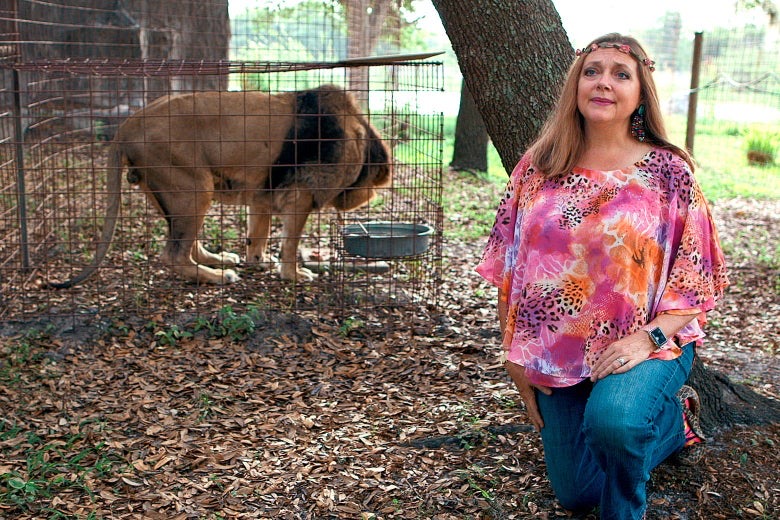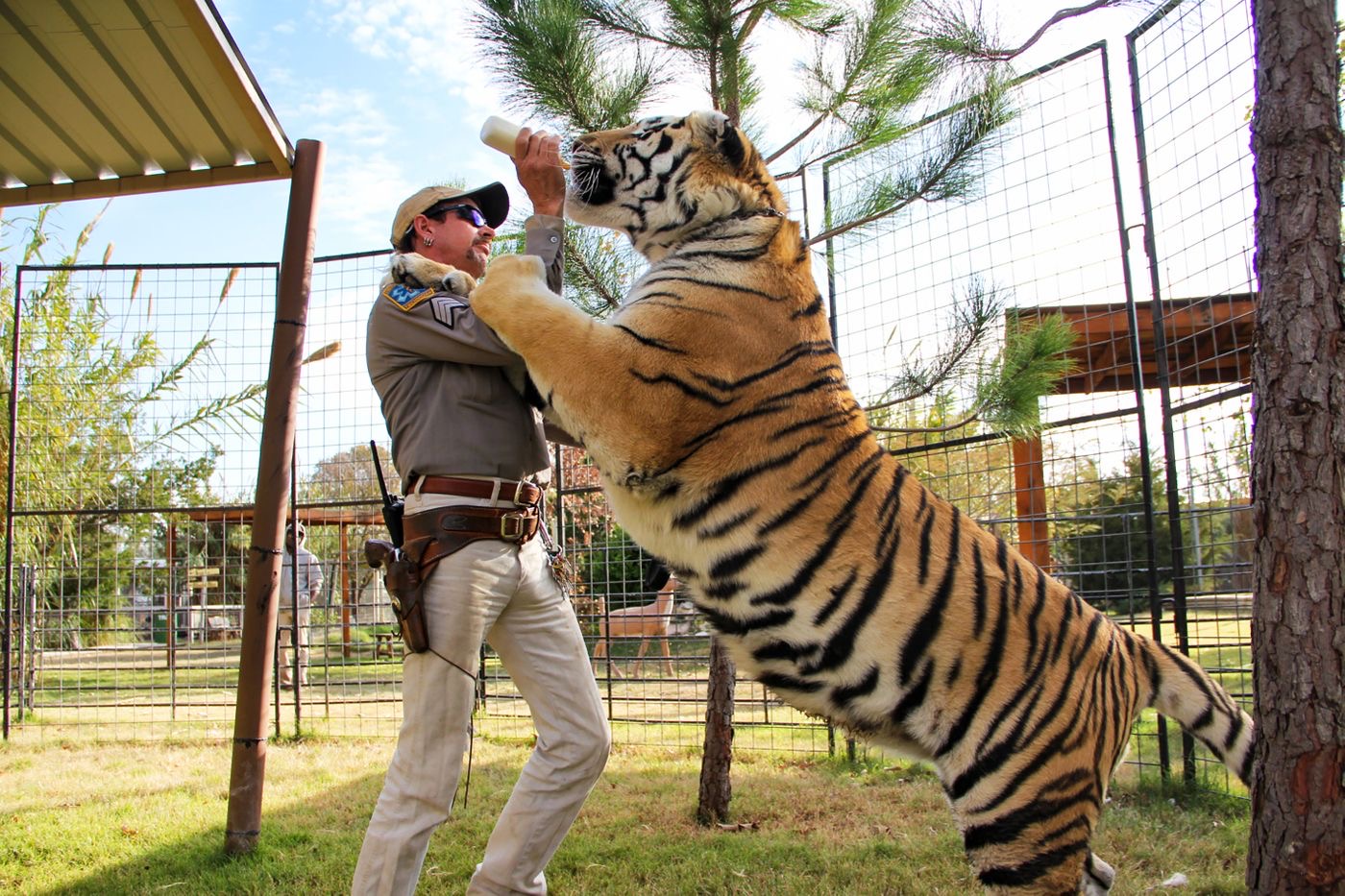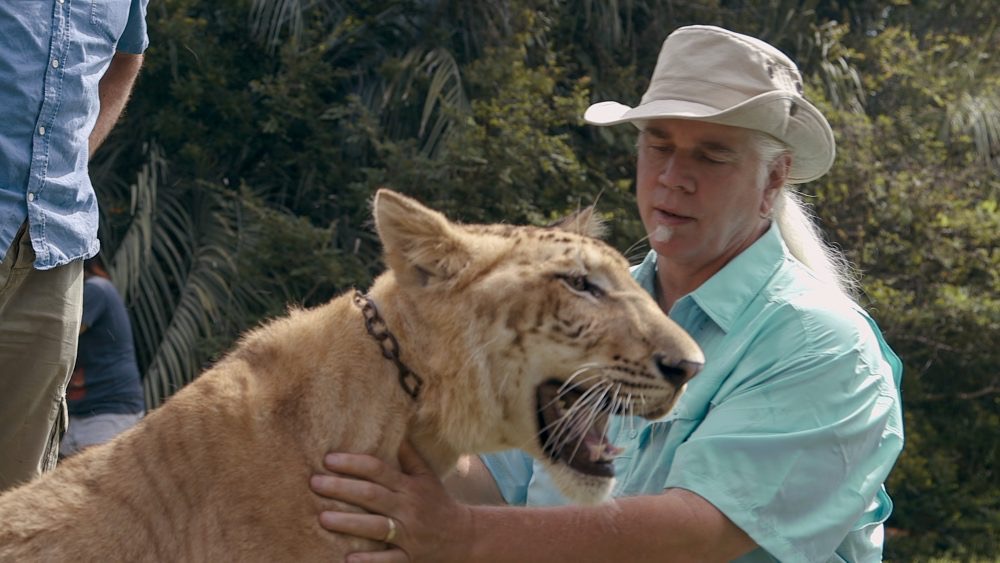Reel Thoughts: Tiger King is your horrible boss (yes, that one)
April 23, 2020
The only question I have after watching “Tiger King” is — why?
The Venn diagram of major “Tiger King” characters and anti-lockdown protestors is probably just a circle. That’s what I took away from watching the hit Netflix documentary series during a pandemic.
I also want to weigh in on some pivotal debates of this era: Did Carole Baskin, owner of Big Cat rescue, kill her husband? Yes, but you can give her the benefit of doubt due to the way the documentary was edited.

Did Joe Exotic, the self-proclaimed gay, polygamist, gun-toting Southern, big-cat keeper, set fire to his own property? Probably.
Will everything be okay? No.
Except for my brother, who asked me, “What’s ‘Tiger King?’” everyone seems to have watched the show and went straight to Twitter to fight about it. Soon enough, “Joe Exotic,” “Carole Baskin” and Bhagavan “Doc Antle,” the overlord of big cat zoos, have all become dialects of the “quaran-teen” generation.

To be clear, every major figure in this documentary is so horrible that their collections of 600-pound Ligers seem almost tame. The documentary, which depicts power grabs and catfights between wildlife owners in the South, is truly the dumpster fire that 2020 deserved.
But at its core, the documentary is about labor — not just the exchange of services for money but the coercion, commodification and expropriation of it.
While Joe Exotic spends his days shooting lip-synced music videos where he destroys Carole Baskin’s likeness, he pays $150 a week to the workers at his private zoo, who work more than 12 hours per day shoveling feces and feeding gigantic cats (if you do the math, it’s well-under minimum wage). And a lot of them are happy to do so; Exotic points out in the documentary that many of them come voluntarily under desperate circumstances, begging to be hired — and he is more than happy to start recording.
Doc Antle’s practice is more openly dystopian. Antle’s employees are literally his “work-wives,” coerced to sleep with Antle to be promoted to higher positions. Some, such as Barbara Fisher, are encouraged to get breast augmentations. These women become the secondary mascots of Antle’s persona, which, in turn, brings profit to his business.
The consequences of these practices are grotesque for the laborer. Saff Saffery chooses to amputate his arm to protect Exotic’s reputation after he was mauled by one of the cats. Antle’s wife-girlfriends, Ranjnee, Moksha and China are reduced to neighboring houses on a stretch of the road Antle passes on his Jeep. The tigers too (spoilers aside) are a part of this.
Maybe the laborers have personalities and autonomy that the primadonnas of the series don’t recognize, but the documentary does not portray that.

The narratives of the workers as a whole are skimmed, utilized and discarded. Even though the portrayal of these exploitative labor practices may be the point of “Tiger King,” these stories are ultimately overshadowed by the melodrama.
Ultimately, “Tiger King” is a reflection of our society’s treatment of labor, just in faster cuts and a more colorful filter. We deserve to see “Tiger King” in 2020 because many of us have become desensitized to the silent labor around us — we’re also probably doing that labor ourselves.
Take Baskin’s Big Cat Sanctuary, for example. Many of its volunteers receive no actual compensation, somewhat akin to glorified free labor such as summer internships or canvassing for a political candidate who will betray campaign promises. For college students with uncertain futures, “Tiger King” may actually hit very close to home.
The creative heads of the show certainly don’t seem to recognize these themes of labor exploitation. Eric Goode, the filmmaker and conservationist who co-directed “Tiger King,” recently laid-off employees from his luxury hospitality businesses, leaving the staff unable to pay their bills.
But maybe it’s fitting that the director seems so oblivious to the themes in his own work. In America, the idea that laborers should be grateful for their labor is so ingrained within us that you can make a show about the abuse of workers without realizing it at all.
Email: [email protected]
Twitter: @yunkyomoonk
Related Stories:
– Reel Thoughts: Portrait of a Lady on Fire only needed the female gaze
– Reel Thoughts: ‘The Photograph’ underdevelops characters, plotline
– Reel Thoughts: ‘1917’ is a bloody good movie worthy of all the nominations

